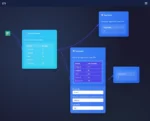Enterprises increasingly rely on a tangled web of APIs, platforms, and microservices, ensuring consistency, quality, and clarity is becoming critical. DataContract-driven development is the forward-thinking approach that cuts through complexity—aligning development, analytics, and operational teams around clearly defined data practices. By establishing explicit expectations through DataContracts, teams not only streamline integration but also maximize value creation, fostering collaborative innovation that scales. Let’s unpack what DataContract-driven development entails, why it matters, and how your enterprise can leverage it to revolutionize data-driven practices.
What is DataContract-Driven Development?
At its core, DataContract-driven development revolves around explicitly defining the structure, quality, and expectations of data exchanged between different teams, APIs, and services. Think of it like a legally-binding agreement—but in the context of software engineering. These contracts clearly specify how data should behave, the schema to adhere to, acceptable formats, and interactions between producer and consumer systems.
Historically, teams faced conflicts and misunderstandings due to ambiguous data definitions, inconsistent documentation, and frequent schema changes. Adopting DataContracts eliminates these uncertainties by aligning stakeholders around consistent definitions, encouraging predictable and maintainable APIs and data practices. It’s similar to how well-designed API guidelines streamline communication between developers and end users, making interactions seamless.
When teams explicitly define their data agreements, they empower their analytics and development groups to build robust solutions confidently. Data engineers can reliably construct scalable pipelines, developers see streamlined integrations, and analysts benefit from clear and dependable data structures. In essence, DataContract-driven development lays the groundwork for efficient collaboration and seamless, scalable growth.
Why DataContract-Driven Development Matters to Your Business
The increasing complexity of data ecosystems within organizations is no secret; with countless services, APIs, databases, and analytics platforms, maintaining reliable data flows has become a significant challenge. Without proper guidance, these tangled data webs lead to costly errors, failed integrations, and inefficient data infrastructure. DataContract-driven development directly addresses these challenges, delivering vital clarity, efficiency, and predictability to enterprises seeking competitive advantages.
Aligning your teams around defined data standards facilitates faster problem-solving, minimizes mistakes, and enhances overall collaboration—enabling businesses to pivot more quickly in competitive markets. By explicitly detailing data exchange parameters, DataContracts offer enhanced systems integration. Teams leveraging these well-defined data agreements significantly reduce misunderstandings, data quality issues, and integration errors, maximizing productivity and making collaboration painless.
Furthermore, adopting this model fosters data democratization, providing enhanced visibility into data structures, enabling ease of access across teams and driving insightful analysis without intensive oversight. DataContracts directly support your organization’s role in delivering value swiftly through targeted API engagements, solidifying collaboration, consistency, and efficiency across the business landscape.
The Pillars of a Strong DataContract Framework
Building a reliable, impactful DataContract framework inevitably involves several foundational pillars designed to manage expectations and drive positive outcomes. Let’s explore the key elements businesses should consider when venturing down a DataContract-driven pathway:
Clearly Defined Data Schemas
Foundational to DataContracts are explicit schemas that dictate precise data formats, types, cardinality, and structures. Schemas eliminate guesswork, ensuring everyone accessing and producing data understands expectations completely. By leveraging clear schema definitions early, teams prevent confusion, potential integration conflicts, and unnecessary maintenance overhead later in the process.
Versioning and Lifecycle Management
Strong DataContract frameworks maintain robust version control to regulate inevitable schema evolution and gradual expansions. Effective data governance requires transparency around changes, maintaining backward compatibility, systematic updates, and straightforward transition periods. This responsible approach eliminates schema drift and minimizes disruptions during inevitable data transformations.
Data Quality and Validation Standards
Reliable data quality standards embedded within DataContracts help businesses ensure data accuracy, consistency, and fitness for intended use. Teams agree upon validation standards, including defined checks, quality tolerances, and metrics to measure whether data meets quality expectations. Implemented correctly, these frameworks protect stakeholders from inadvertently consuming unreliable or unstable data sources, improving decision-making integrity.
Implementing DataContracts: Best Practices for Success
Transitioning towards DataContract-driven development is an exciting journey promising considerable organizational upside but demands careful implementation. Adhering to certain best practices can drastically improve outcomes, smoothing the path towards successful adoption:
Collaborative Cross-Functional Alignment
A successful DataContract initiative cannot exist in isolation. Stakeholder buy-in and cross-functional collaboration remain essential for sustainable success. Leaders must clearly outline data expectations and discuss DataContracts transparently with developers, analysts, engineers, and business personnel alike. Collaborative involvement ensures consistency, support, and accountability from inception to successful implementation, leveraging perspectives from multiple vantage points within your organization.
Utilize Automation and Tooling
Automation plays a vital role in implementing and maintaining DataContract frameworks consistently. Businesses should leverage testing, schema validation, and continuous integration tooling to automatically enforce DataContracts standards. Tools like schema registries, API validation platforms, and automated testing frameworks streamline validation checks, reducing human error, and offering real-time feedback during product rollouts.
Offer Education and Support to Drive Adoption
Education and coaching remain vital considerations throughout both the initial adoption period and continuously beyond. Teams need proper context to see tangible value and prepare to adhere reliably to your new DataContract standards. Offering detailed documentation, well-structured training sessions, interactive workshops, or partnering with experts in API and data consulting can significantly reduce the barrier of entry, ensuring seamless, rapid adoption by optimizing organizational learning.
The Strategic Value of DataContracts for Analytics and Innovation
The strategic importance of DataContracts cannot be overstated, especially regarding analytics initiatives and innovative pursuits within businesses. These defined data frameworks ensure both accuracy and agility for analytics teams, offering clarity about data definitions and streamlining the development of ambitious analytics solutions or data-driven products.
Advanced analytics disciplines, including predictive modeling, machine learning, and artificial intelligence, require pristine datasets, consistency, and stability for operating in complex environments. Without clearly defined DataContracts, analysts inevitably experience frustration, wasted time, and reduced productivity as they navigate unexpected schema changes and unreliable data. Embracing DataContract-driven practices amplifies the potency of your data mining techniques and empowers analytics professionals to deliver meaningful insights confidently.
Moreover, innovation accelerates considerably when teams operate from a solid foundation of reliable, consistent data standards. DataContracts remove organizational noise, allowing streamlined experimentation efforts such as A/B testing, rapid pilot programs, and quickly iterating solutions. Enterprises seeking an edge benefit greatly by adopting structured data governance frameworks, bolstering agility, and delivering tangible results effectively. It directly accelerates your enterprise journey, aligning real-world insights through coherent data management and streamlined analytics integration, translating into competitive advantages to stay ahead.
Future-Proofing Your Business with DataContract-Driven Development
Looking ahead, technology landscapes become increasingly data-centric, shaping lasting data engineering trends. Mastering robust data-centric strategies using DataContracts sets organizations apart as forward-looking and innovation-ready. Keeping pace with ever-changing technology demands strong foundations around data standards, agreements, and operational simplicity.
Implementing comprehensive DataContracts early manifests value immediately but also ensures preparedness toward future industry shifts, empowering teams across your organization with confidence in their data infrastructure. It liberates professionals to advance the leading edge, proactively leveraging trends and exploring future data opportunities.
Enterprises pursuing long-term growth must adopt visionary approaches that ensure data trustworthiness and agility. DataContract-driven development is exactly that framework, setting clear guardrails encouraging targeted innovation, offering accurate risk management, accountability, standardization, and increased transparency. It positions your organization strategically to embrace whatever industry disruption emerges next, ensuring continual alignment and ease of scalability, proving DataContracts a cornerstone for growth-minded businesses.
Ready to create your unique DataContract-driven roadmap? Explore our in-depth exploration of 30 actionable data strategies and understand the nuances between grassroots consultancy vs enterprise partnerships to help kickstart your transformational journey.

























